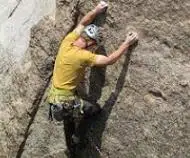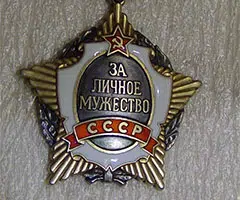 The notion of courage derives from the French corages . The concept is used to refer to courage , bravery or bravery . For example: "With great courage, the young man entered the burning house to rescue the dog" , "The woman showed her courage by acting that way" , "The judges in this country lack the courage to confront corruption" .
The notion of courage derives from the French corages . The concept is used to refer to courage , bravery or bravery . For example: "With great courage, the young man entered the burning house to rescue the dog" , "The woman showed her courage by acting that way" , "The judges in this country lack the courage to confront corruption" .
Courage is considered a human virtue . It is about the strength that an individual has to act despite difficulties or dangers. Thanks to his courage, a person can overcome obstacles and carry out an action.
It can be said that courage is necessary to leave behind fear : of physical pain, of death, of failure, of criticism, etc. If the subject is a coward , however, fear will paralyze him and prevent him from acting.
Suppose a man notices that a child is drowning in the sea. In order to save the little one, and putting his own life at risk , this person jumps into the water. This behavior shows the courage of the man.
Let's take the case of a teenager who loves dance and is often a victim of bullying for that passion. When a teacher proposes that he dance before his classmates at a school event, the young man decides to face the possible ridicule and, with courage, accepts the proposal since he enjoys dancing and understands that no one should bother him for it.
In Poland there is the Medal for Sacrifice and Courage , a civil decoration that originated on February 17, 1960 to honor those individuals who risk their lives in rescue missions. The design of this medal was carried out by Józef Jan Gosławski , a prominent medalist and sculptor, who bequeathed works such as the monument to Frédéric Chopin , a sculpture displayed in a park near the composer's home.
 The Presidium of the Supreme Soviet of the USSR created on December 28, 1988 a distinction called the Order of Personal Courage , with the objective of honoring citizens who exhibited an admirable display of courage in acts such as rescuing people at risk of death, or any action that promotes the integrity of the State and public order, whether in the context of a natural disaster or any dangerous situation.
The Presidium of the Supreme Soviet of the USSR created on December 28, 1988 a distinction called the Order of Personal Courage , with the objective of honoring citizens who exhibited an admirable display of courage in acts such as rescuing people at risk of death, or any action that promotes the integrity of the State and public order, whether in the context of a natural disaster or any dangerous situation.
It is worth mentioning that the Presidium was one of the most important governing bodies of the Soviet Union; It was made up of the President, fifteen deputies (one from each republic), a secretary and, finally, a total of twenty ordinary members. The medal has a large golden star on a slightly oval base, and between the unmistakable symbol of the hammer and sickle and the acronym of the Union of Soviet Socialist Republics it displays the following message: "To personal courage."
Courage is associated with a series of principles and qualities put at the service of justice . It is an exercise of will that has an objective that cannot be postponed, whether the obstacle to be overcome is within us or in front of us. Courage leads us to: lean on our beliefs and convictions to face danger and adversity; live responsibly according to certain values that define us; keep standing despite defeats. In other words, the vertices of courage are bravery, integrity, persistence and vitality.
Courage, on the other hand, can be used to refer to anger or irritation : "The old man confessed that he killed his neighbor out of anger," "It makes me angry that politicians do not pay attention to the needs of the people."
